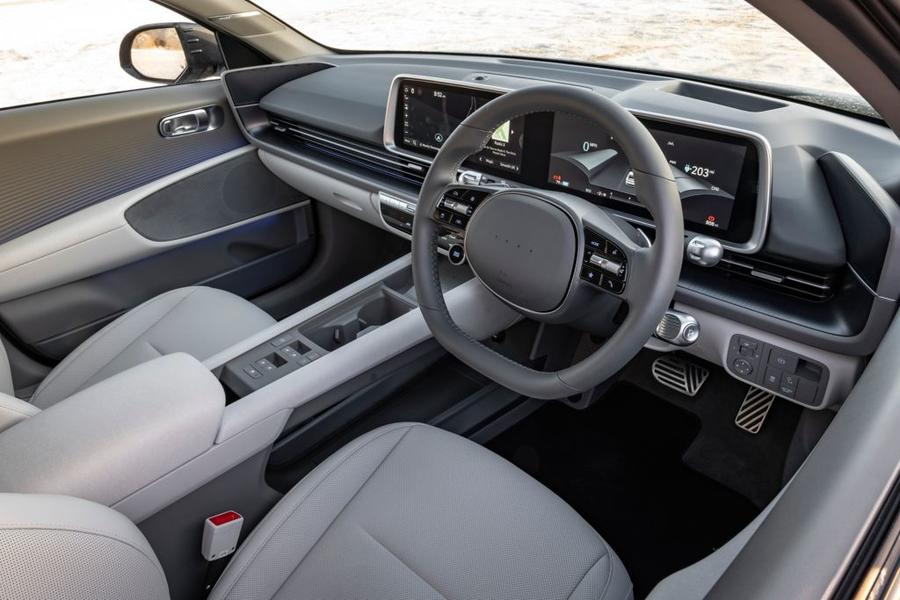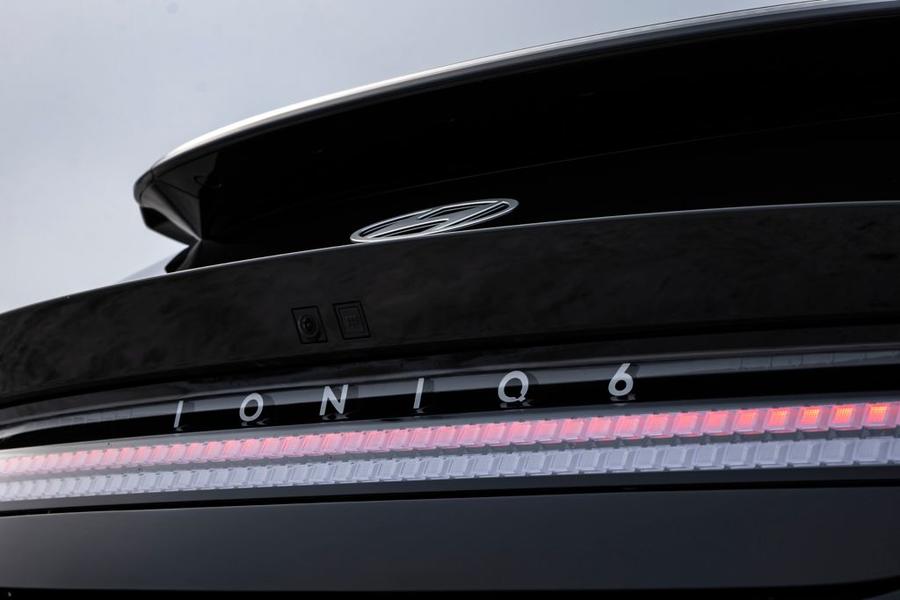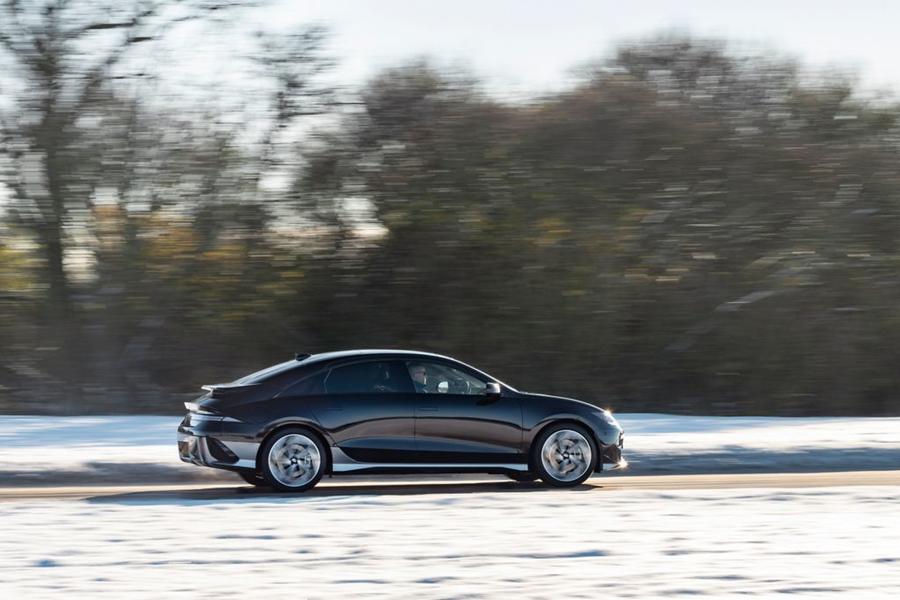Sleek Ioniq 5 sibling finally reaches the UK to take on the Tesla Model 3
Last year, the Toyota GR86 famously sold out in just 90 minutes, giving Glastonbury a run for its money in the popularity stakes. But there was another fast-selling in-demandcar that slipped under most people’s radar: the Hyundai Ioniq 6 First Edition, which was all gone in just 24 hours.
Granted, that’s not quite Billie Eilish fast, but for an electric car, and a Hyundai at that, it’s still some statement. As a result of its global popularity and the (yawn) ongoing supply problems, we’re only just getting into a first review of the car in the UK, despite it being available in Korea back in October. The proper dealer allocation won’t even come through until March, with UK prices for the Ioniq 6 starting at £46,745.
What can people expect when it does finally arrive? Certainly one of the more individually styled cars on the road. I was in the design preview briefing for the Ioniq 5 with Hyundai chief creative officer Luc Donckerwolke and thought at the time that car was punchy, but on the road the 6 is arguably even more distinctive, with its streamliner profile and twin-deck rear.
It’s based on the same E-GMP platform as the 5 and comes with the same 77kWh battery that has recently been dropped into its sibling. Thanks to its reduced drag coefficient of 0.21, the rear-wheel-drive Ioniq 6 can do a claimed 338 miles between charges. That’s not only a useful bit more than the 5 but also within a whisker of the Tesla Model 3 Performance. Like all EVs, though, that drops in winter and our test range was 230 miles.

Adopting the same 800V architecture as the 5, the Ioniq 6 can use 350kW fast chargers (if you can find one) to go from 10% to 80% in 18 minutes.
There is also a twin-motor all-wheel-drive 6, which gets 16 miles less range but lops 2.3sec off the 0-62mph time. Our rear-driver manages a reasonable 7.4sec, which is more than adequate for most situations, even if it can’t compete with Tesla’s clickbait figures.
The 6 is available in two trims (if you ignore the limited First): Premium from £46,745 and Ultimate, tested here, at £50,245. Interestingly, these figures aren’t too dissimilar to the 5’s, a ploy by Hyundai to offer two solutions depending on needs and tastes.
Normally, I’d stick to the lower trim but in this case the Ultimate makes more sense because it gets the kit you’d want: plush Relaxation front seats with ventilation, improved audio, an excellent head-up display and a 360deg camera.
One thing: I have a feeling the car could be quite colour sensitive as the black loses some of the streamliner detail on a dull day in Surrey. Choose wisely, even if the vast majority of options look like shades of grey on the configurator.
Build quality inside is top-notch and the layout light and airy. You sit slightly higher than I was expecting, but the position itself isn’t uncomfortable and the view forward is dominated by the twin screens, mercifully also with physical buttons to take you to items like the nav or favourites. Take note, Volkswagen.

Rear knee room is impressive, although the skateboard battery and sloping roofline mean the floor is quite high and the head room tight. The 5 is better if you carry tall people. Both cars get a set of controls that enable the front passenger seat to be moved by someone in the rear. Beware of that if you’ve got kids who fiddle.
Out on the road, the Ioniq 6 accelerates as you’d expect – swiftly from a standstill and then tailing off as the speed rises. As the headline figures suggest, it’s not whip-crack fast but I can’t see many instances when you’d need much more.
As befits the smoother styling, this is more of a lounge driving experience than in the edgier hatchback 5. It’s the sort of car that would do very well churning through motorways, quiet and largely comfortable. The primary ride is good, tied down and not floating, while the steering is of the right sort of pace and feel to make long journeys effortless.

The trouble is that it’s not as good over the UK’s rougher roads. Here, the dampers struggle to control the 20in wheels and unsprung weight, making it a bit too lumpy. You can feel that the fundamentals are largely correct because the 6 rolls over a bump with a certain degree of suppleness, but the control isn’t there when you hit several in a row. It’s a pity that the 6 can’t nail the comfort angle entirely.
Weirdly for an executive EV, there is the occasional hint of amusement. I gave it a bootful on a wet roundabout, and although the resulting action could hardly be called drifting, it definitely needed a slight steering correction.
It’ll be interesting to see which of the 5 or 6 fares better in the UK. I suspect it will be the 5, but the 6 deserves its place and should also be considered alongside cars like the Model 3 and Polestar 2. Hyundai’s brave new world expands.
Source: Autocar
